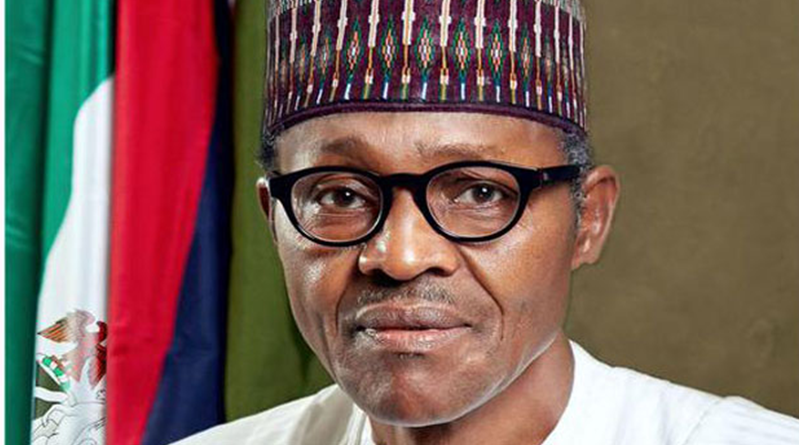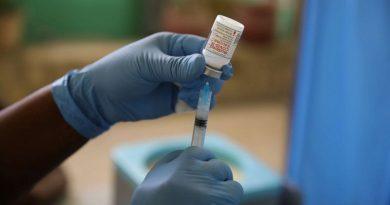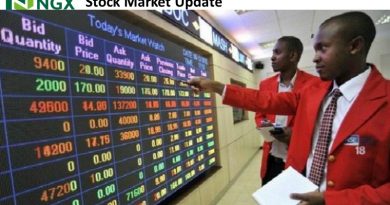Buhari Presents $8.83trn 2019 Budget to NASS
President Muhammadu Buhari on Wednesday presented an N8.83 trillion 2019 budget for next year to a joint session of the National Assembly in Abuja, which many analysts have described as ambitious, given the regime’s struggles to meet revenue targets.
The president also revealed that it would spend the sum of N305 billion on fuel subsidy in 2019.
According to President Buhari, the exchange rate of N305/$ is to be retained while real GDP growth of 3.01 percent and inflation rate of 9.98 percent are expected in 2019.
The president and his cabinet members had reviewed and approved a N9.1 trillion spending plan on December 7, 2018 but this was reviewed downwards on revenue constraints.
According to analysts, a trend analysis of the implementation of budgets in the past three years indicates revenue shortfalls amid fluctuation of oil prices and below par remittances from revenue generating units of government, including the oil behemoth, the Nigerian National Petroleum Corporation (NNPC).
An Abuja-based economist, Cyril Ampka, said the reality of the spending plan in the proposed budget is that Nigeria will be grounded so early in the year.
“The government is not looking at the current reality in the oil market as if the mainstay of the economy has shifted from oil.
“It is a good thing if the diversification effort of the government is yielding the required result to assist in funding the economy. The answer is that Nigeria will be left with fewer opportunities next year”, he said.
“At $60, the benchmark price could be ambitious,” said Bismarck Rewane, chief executive officer of Financial Derivatives Company, a risk advisory group based in Lagos.
“It means there could be a shortfall. A shortfall would lead to a deficit and a supplementary budget would then be imminent.”
President Buhari, who did not categorically refer to the N305 billion expenditure as fuel subsidy, noted that the sum was to cater for under-recovery of PMS (premium motor spirit) incurred by the Nigerian National Petroleum Corporation (NNPC).
He said, “We have allowed for N305 billion ($1 billion) for under-recovery by NNPC on PMS in 2019. We will continue working to bring it downwards so that such resources are freed up to meet the developmental needs of our people.”
Explaining the rationale behind the reintroduction of subsidy even in the face of hiked fuel prices to N145 per litre, the president said government must reduce economic burden on the masses due to weakening purchasing powers.
“Let me also take this opportunity to address and clarify the under-recoveries or subsidy on petrol. In a period of economic challenges where purchasing power is weak, we must reduce some of the burden on Nigerians.
“The problem with subsidies in the past is abuse and corruption. Today the government, through the NNPC, is the sole importer of PMS and, therefore, the under-recovery is from the NNPCs trading account. This means the possibility of some marketers falsifying claims is removed,” he said.
The Buhari administration had withdrawn subsidy on petrol in 2016, forcing independent oil marketers to pull out of importation of the product.
Their withdrawal left the NNPC as the sole importer of petrol, whose pump price remained capped at N145 per litre against a landing and supply cost of N185/litre.
Since then, the NNPC has been drawing from the Nigerian Liquefied Natural Gas (NLNG) dividend fund to cover the under-recoveries amounting to N40/litre in importation of petrol.
So far, the NNPC has utilised $1.05 billion or N320 billion of the fund to cover the under-recoveries, according to its Group Managing Director, Maikanti Baru.
However, this has drawn the anger of the Senate, which believes the oil company lacked the legal powers to unilaterally spend the money without appropriation by the National Assembly.
According to analysts, the provision for subsidy in the 2019 budget proposal would lay to rest the disagreement between the lawmakers and the NNPC on the matter.
A breakdown of the budget estimates shows that the Niger Delta Development Commission (NDDC) and the Universal Basic Education Commission (UBEC) attracted improved budgetary provisions from the sum of N492.36 billion from statutory transfer.
The president said, “The provision for N492.36 billion statutory transfers in 2019 is a seven percent decrease from 2018.
“However, transfers to Niger Delta Development Commission (NDDC) and Universal Basic Education Commission (UBEC) are projected to be higher as they are directly related to the quantum of oil revenue.”
While oil benchmark is pegged at $60 per barrel from a projected output of 2.3 million barrels per day, the budget deficit is projected to decrease to N1.86 trillion (or 1.3 percent of GDP) in 2019 from N1.95 trillion projected for 2018.
This reduction, according to the president, is in line with government’s plans to progressively reduce deficit and borrowings.
Total revenue is also projected at N6.97 trillion (which is 3 percent lower than the 2018 estimate of N7.17 trillion), consisting of oil revenue projected at N3.73 trillion and non-oil revenue estimated at N1.39 trillion.
Of the total allocation of N8.83 trillion, the sum of N2.14 trillion is to go into debt servicing, even as N799.52 billion from Companies Income Tax (CIT), N229.34 billion from Value Added Tax (VAT), and Customs Duties of N302.55 billion are projected to come from non-oil revenue.
He said government had also reduced its expectation from independent revenues to N624.58 billion, with other revenues expected in 2019 to include various recoveries of N203.38 billion, N710 billion as proceeds from the restructuring of government’s equity in joint ventures and other sundry incomes of N104.11 billion.
Also to make up the total revenue of N8.83 are grants and donor funds of N209.92 billion. The provision in the president’s opinion is less than the 2018 FGN appropriated expenditure estimate of N9.12 trillion.
“However, it is higher than the N8.6 trillion originally proposed by the executive branch to the National Assembly for 2018,” Buhari said.
On the take-off funds for the North-East Development Commission, a total sum of N45 billion was allocated with an immediate sum of N10 billion to be approved for commencement of activities by the body.
On job creation through diversification, and support for Small and Medium Scale Enterprises, which are to be the focus of industrialisation drive, Buhari said government had set aside the sum of N15 billion for the recapitalisation of the Bank for Agriculture and the Bank of Industry.
In addition, the sum of N10 billion is provided as a grant to the Bank of Industry for the purpose of subsidising the interest rates charged on loans to Small and Medium-Scale Enterprises. This is intended to make it possible for them to access single digit interest rate loans from the Bank of Industry.
On other subheads, capital allocation for 2019 is pegged at N2.28 trillion, including capital statutory transfers, while personnel costs is estimated at N2.29 trillion.
Recurrent expenditure is to gulp a total of N4.04 trillion.
A sinking fund of N120 billion, according to the president, would be used to retire maturing bond to local contractors.
Under sub-heads to the MDAs, the sum of N569.07 billion is to go to the Ministry of Interior, N435.62 billion to the Ministry of Defence, N462.24 billion to the Ministry of Education, and N315.62 billion to the Ministry of Health, respectively.
President Buhari also gave an overview of the implementation of the N9.12 trillion 2018 budget, saying 67 percent performance had so far been recorded by ministries, departments, and agencies (MDAs) of government.
According to him, out of the total appropriation of N9.12 trillion, N4.59 trillion had been spent by September 30, 2018 against the prorated expenditure target of N6.84 trillion.
He said: “This represents 67 percent performance. Debt service and the implementation of non-debt recurrent expenditure, notably payment of workers’ salaries and pensions are on track.
“Despite the delay in the passage of the 2018 budget on 20th June 2018, the sum of N820.57 billion had been released for capital projects as at 14th December, 2018.
“We have carried over capital projects that were not likely to be fully funded by year-end 2018 to the 2019 budget.”
The president said the 2018 budget was based on a benchmark oil price of 51 dollars, oil production of 2.3 million barrels per day, and an exchange rate of N305 to the dollar.
“In 2018, average oil production up to end of the third quarter was 1.95mbpd, as against the estimated 2.3mbpd for the entire year.
“However, average market price of Bonny Light crude oil was higher (an average of $74 per barrel as at October) than the benchmark price of $51.
“As at the end of the third quarter, Federal Government’s actual aggregate revenue was N2.84 trillion, which is 40 percent higher than 2017 revenue.
“The overall revenue performance is only 53 percent of the target in the 2018 budget largely because some one-off items are yet to be actualised. We have now rolled this revenue item over to 2019,” he said.
President Buhari also suggested there would be a review of the N30,000 proposed by a tripartite committee as the minimum wage in the country.
“Let me say something about the minimum wage issue. I am committed to addressing the issue of a new minimum wage and I will be sending a bill to the National Assembly on this. However, in order to avoid a fiscal crisis for the Federal Government, as well as the states, it is important to devise ways to ensure that its implementation does not lead to an increase in the level of borrowing.
“I am accordingly setting up a High Powered Technical Committee to advise on ways of funding an increase in the minimum wage, and the attendant wage adjustments, without having to resort to additional borrowings.
“The work of this Technical Committee will be the basis of a Finance Bill which will be submitted to the National Assembly, alongside the Minimum Wage Bill. In addition, the Technical Committee will recommend modalities for the implementation of the new minimum wage in such a manner as to minimize its inflationary impact, as well as ensure that its introduction does not lead to job losses.”
While urging the lawmakers to expedite action for the passage of the 2019 budget, the president stressed the need for the legislature to partner with the executive arm of government for the benefit of Nigerians.
The country, Africa’s biggest oil producer and most populous nation, depends on crude exports for two-thirds of its revenue and has just “recovered from recession” after a slump in 2016.
The nation’s budget has more than doubled since 2015 to N9.1 trillion this year and the spending cuts come as the country prepares to hold general election in February next year.
“Chances of the budget proposal being passed before the February 16 general election are ‘virtually nil’, New York-based risk-advisory group, Teneo, said in a Dec. 17 note.
“Past budgets presented by the Buhari administration were only approved in the second quarter of the following year, and the incentive for the opposition to delay the process this time around is particularly high.”
Saraki Laments State Of The Nation
Senate President Bukola Saraki on Wednesday decried the situation in the country in the past three and half years, saying if the negative indices are not unchecked, they will lead to dire consequences.
Saraki, who stated this during the 2019 budget presentation by President Muhammadu Buhari, advised the president that future budgets should be accompanied by a Finance Bill, adding that it is one way of establishing credibility in projected revenues.
Appealing to the president to sign the Petroleum Industry Governance Bill, National Transport Commission Bill and Federal Road Authority Bill into law, Saraki said, “Without doubt, the last three-and-a-half years have been eventful ones at the global level and in our domestic economy.”
He further explained that “from dips in oil prices to major shifts in the economic landscape, crude oil production shut-ins and security challenges, the economy and Nigerians have been directly impacted by these events.
“Many businesses closed down and many people lost their jobs during the recent recession. In the same period, we lost innocent citizens to insurgency in parts of the North-East, thousands were displaced, and many lives also lost due to clashes between farmers and herders, in addition to the general hardship unleashed by unstable economic winds.
“These are some of the security challenges we have faced. We must take them head-on; it is a battle we must win as a country. It must be admitted that we are not there presently. For one, these security challenges now pose a threat to the viability of the agricultural sector.
“This is clear in the marked reduction in agricultural output observable since the first quarter of 2018. There is the need for more efforts by all. We here are prepared to give all necessary support to the executive. We stand ready and committed to assist in every way we can, in order to ensure food security and the protection of lives and property.”
Speaking on the recovery from recession, which he described as still fragile, the President of the Senate said, “The recovery from the recession is still fragile. The fundamentals underlying the recovery remain weak, and if unchecked, can lead to dire consequences.
“The economy still runs on oil and very little progress has been made in terms of diversification. As a result, the expansionary budget policy in effect since 2016, which was aimed at raising spending and stimulating growth in the economy, was not matched by achievable revenue targets. The corollary is higher and rising deficit as well as a considerable debt burden, all due to an unsustainable fiscal stance.
“The under-performance of independent revenues is straining government’s ability to meet its expenditure, especially investments in critical infrastructure. This further exposes government to higher deficit levels which have been largely financed by borrowing.”
Stressing the importance of setting realistic revenue targets, Saraki said, “We cannot afford to rely on borrowing to finance recurrent expenditure. It is critical we shift focus to generating as much money as required for spending, at least for recurrent needs, so loans can be used solely to fund capital projects.
“Another challenge we must address urgently is the huge cost deductions by the Nigerian National Petroleum Corporation (NNPC). Net oil inflow into the Federation Account is significantly lower than projected on account of these deductions by way of unappropriated petroleum subsidy. I have on many occasions stressed that it might be better to capture petroleum subsidy as a line item in the budget if government must continue to finance it.
“We cannot shy away from this issue. The current system is opaque at best, fraught with inefficiencies and is a sure pathway to corruption. Estimated deductions for petroleum subsidy claims by NNPC year-to-date can neither be explained by the higher PMS landing cost nor the increased supply of petroleum to the domestic market.
“We can better manage these by returning to a more transparent practice of capturing the items as against the erroneous and illegal approach of cost recovery for payment for importation of petroleum products.
“I should also say that we will not get things right if we do not match budget credibility with predictability.”
SOURCE: INDEPENDENT.NG




